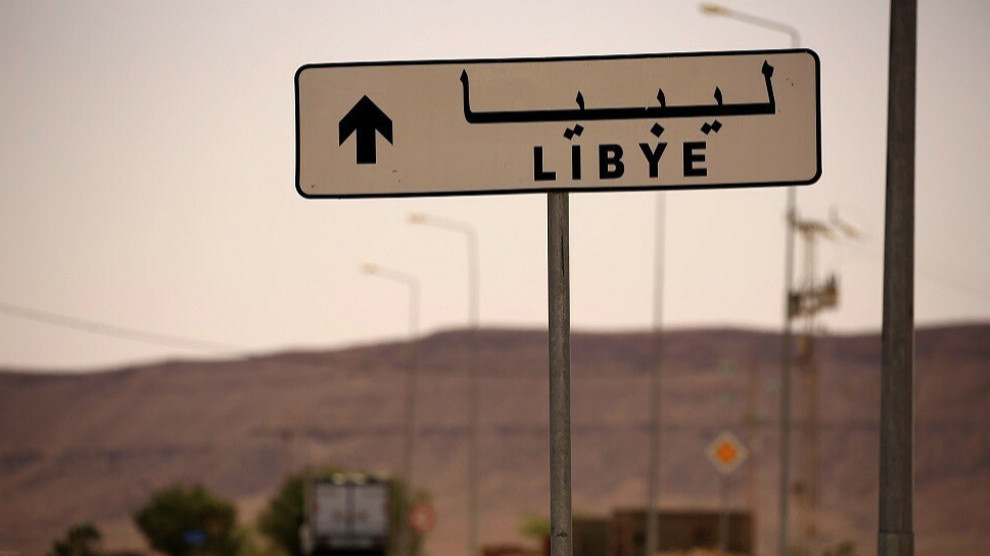A brutal proxy war is raging in Libya. The Government of National Accord (GNA) is supported by Turkey and its Salafist mercenary troops from Syria. On the other hand, Russia is recruiting men from Sunni tribes and is sending former fighters of the so-called FSA in the Dara region, and sending them to Libya.
According to available information, these people are brought together by Russia at the Khmeimim air base in Syria, where they are trained for about a week. They are be sent to Libya in support of General Haftar's Libyan National Army (LNA) in the fight against the GNA. However, most of the mercenaries are withdrawn from Syria by Turkey and transferred to Libya. In this way, the Turkish government wants to strengthen its position in North Africa and put Egypt under pressure through the Muslim Brotherhood.
13,000 jihadists sent from Turkey to Libya
According to the Syrian Observatory for Human Rights (SOHR), based in London, over 13,000 militiamen were sent from Syria to Libya as of June 2020. 417 Syrians have died in the meantime, 30 of them are said to have been minors. According to the report, Turkey has sent about 300 "child soldiers" from Syria to Libya. According to SOHR this is a war crime.
Yûnis Behram of the Kurdish-German Forum told ANF about the Syrian mercenaries in Libya. Behram tells that Turkey is gathering these troops, especially in the occupied territories in Syria, and is bringing them to Libya by plane via Antep province.
Yûnis Behram
"Recruitment has become a source of income"
The massive influx of mercenaries from Syria to Libya has not only to do with forced recruitment. Behram makes a direct connection with the US sanctions against Libya, which leave people without a source of income: "People have begun to regard recruitment as mercenary in Libya as an important source of income because of the poverty and difficulties in survival in various regions of Syria. The Turkish state takes advantage of this need, says Behram.
Money to mercenary families declared as "aid for Syrian refugees"
"For every mercenary in Libya, $2,000 a month is paid. However, they themselves receive only $300. "The remaining $1,700, according to their contract, go to their families. This money is declared as aid for people from Syria and is financed from the funds paid under the EU-Turkey agreement. This is nothing more than a major fraud. The money paid to these groups are also charged to the Sarraj and Qatar governments. So the money from the EU-Turkey agreement is indirectly going straight back into Turkey's coffers.”
"Jihadists from different groups"
Above all, Turkey also sends members of the alliance of jihadist, extreme right-wing or simply criminal militias, the so-called "Syrian National Army" (SNA), which was set up as an occupying corps in Northern Syria, to Libya. Journalist Delîl Zîlan reports that some of these militiamen have returned to Syria because they did not receive any money and that serious clashes between the Turkish state and its occupying militias are taking place because of recruitment.
From Syria to Libya, from Libya to Heftanin in Southern Kurdistan
Journalist Farhad Shami closely follows developments within the armed groups in Syria. He also confirms the number of 13,000 mercenaries brought to Libya from Syria by Turkey. These come from 15 to 16 different militias. 2,000 of the militiamen sent to Libya have been brought back from Turkey in recent weeks and are to be sent to war against the guerrillas in the region of Heftanin in southern Kurdistan (northern Iraq). They are mainly members of the Islamic right-wing extremist Sultan Murad Brigade, the Suleiman Shah Brigade and Furqat al-Hamza.
Shami states: "According to our information, these jihadists are to be sent to South Kurdistan to fight against the PKK. These people are currently being trained in Turkey. They will be deployed to Heftanin in the next days".
Guerrilla fighters have already reported several times that not only dead soldiers, but also ISIS jihadists and members of other Turkish-backed militias have been found in overrun Turkish positions.
 Yûnis Behram, Farhad Shami, Delîl Zîlan (from left to right)
Yûnis Behram, Farhad Shami, Delîl Zîlan (from left to right)
"Dispute over defaulting payment"
In particular, conflicts arose with the groups Jaysh al-Islam, Faylaq al-Rahman, Ahrar al-Sharqiya, Jaysh al-Sharqiya and other jihadist militias active on behalf of Turkey in Syria, as payments by Turkey failed to materialize. Shami says: "These groups had agreed to receive $2,000 per person sent to Libya. However, as far as we know, only 400 dollars were paid out in Turkish lira. As a result, these groups wanted to withdraw their members. This was the reason for the conflicts between the militias and the Turkish state."
"Russia is another actor in the mercenary transfer to Libya"
Journalist Delil Zîlan tells that Russia is trying to recruit mercenaries from Sunni tribes, particularly in Deir ez-Zor, south of Hesekê and Raqqa. "Russia has focused primarily on some Arab tribes in northeastern Syria. This is partly about sending mercenaries to Libya, but more importantly it's about weakening the SDF in this way."
"Russia has not achieved the desired results in Northern Syria"
Farhad Shami states that Russia has launched recruitment attempts in the Cizîrê region, in Til Berak, Til Hemis and the areas controlled by the regime, but has not been able to achieve the desired results. In contrast, the situation in Dara is quite different: "There, members of armed groups who had previously fought against the regime have surrendered according to an agreement. They were sent to Libya in large numbers, as well as people from the border region of Lebanon and the Damascus area".


 Yûnis Behram, Farhad Shami, Delîl Zîlan (from left to right)
Yûnis Behram, Farhad Shami, Delîl Zîlan (from left to right)











